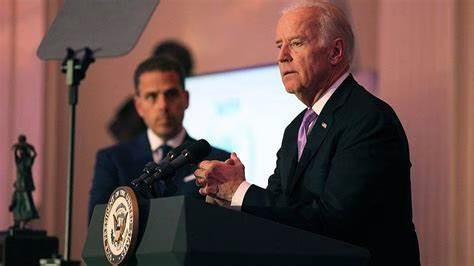In a controversial final act as president, Joe Biden granted sweeping preemptive pardons to five members of his family, just moments before Donald Trump was sworn in as the 47th president of the United States. The timing was not lost on anyone. As Biden’s presidency closed, his family received legal immunity amid rising calls from the right to investigate the Biden clan.
Steve Gruber chimed in on the announcement, calling Biden a criminal:
Biden’s decision was swift, coming as the nation watched the transition of power. “My family has been subjected to unrelenting attacks and threats, motivated solely by a desire to hurt me,” Biden said in his statement. “Unfortunately, I have no reason to believe these attacks will end.”
The pardons extended to Biden’s two brothers, James and Frank, his sister, Valerie Biden Owens, and her husband, John T. Owens. These preemptive moves were seen as a response to accusations from Republican figures who had been vocal about the potential legal troubles facing the Biden family. Biden made it clear that these actions were a defense against “baseless and politically motivated investigations.”
The justification for these pardons has already sparked a political firestorm. Republicans, especially those aligned with Trump, wasted no time in labeling the move as hypocrisy. “Remember when Chuck Schumer warned Trump against pardoning his children? This reeks of the same abuse of power,” said Alex Pfeiffer, a spokesman for Trump’s team. In 2020, Senate Democratic Leader Chuck Schumer criticized Trump’s consideration of pardoning his children, calling it an overreach.
Biden’s defenders, however, framed the pardons as necessary protection. “The mere fact of being investigated or prosecuted can irreparably damage their reputations and finances,” Biden said, emphasizing the toll such probes could take on those unjustly targeted.
In addition to his family, Biden issued pardons for other prominent figures, including Dr. Anthony Fauci and General Mark Milley, both of whom had been targets of right-wing criticism during his presidency. The pardons for the officers involved in the January 6 investigation also stood out as a symbolic move of support for those who faced threats for their roles in defending the democratic process.
Yet the timing and scope of the pardons raise eyebrows. Biden’s final days in office were marked by a series of pardons that seemed aimed at protecting not just family but allies and figures caught in the political crossfire. His pardon of Hunter Biden, which many considered a surprising turn, was particularly controversial. The president had repeatedly stated he would not intervene in his son’s legal troubles, yet he did just that, pardoning Hunter of federal tax and gun charges. The move angered some Democrats, with California Senator Adam Schiff calling it “a very ill-considered decision.”
However, Schiff received a pardon on Monday as well.
Biden’s words, meant to defend his actions, left more questions than answers. “I am exercising my power under the Constitution,” he said, though it’s clear that his use of presidential pardon power has not been without its critics. Was it a shield for family members, or a political move to cement loyalty and protect against future legal battles?
Biden’s last-minute pardons were a statement, one that will likely reverberate through the political landscape for years. As Trump takes office, the question remains: did Biden’s actions secure his family’s future, or was it just another maneuver in an ongoing partisan chess game?
